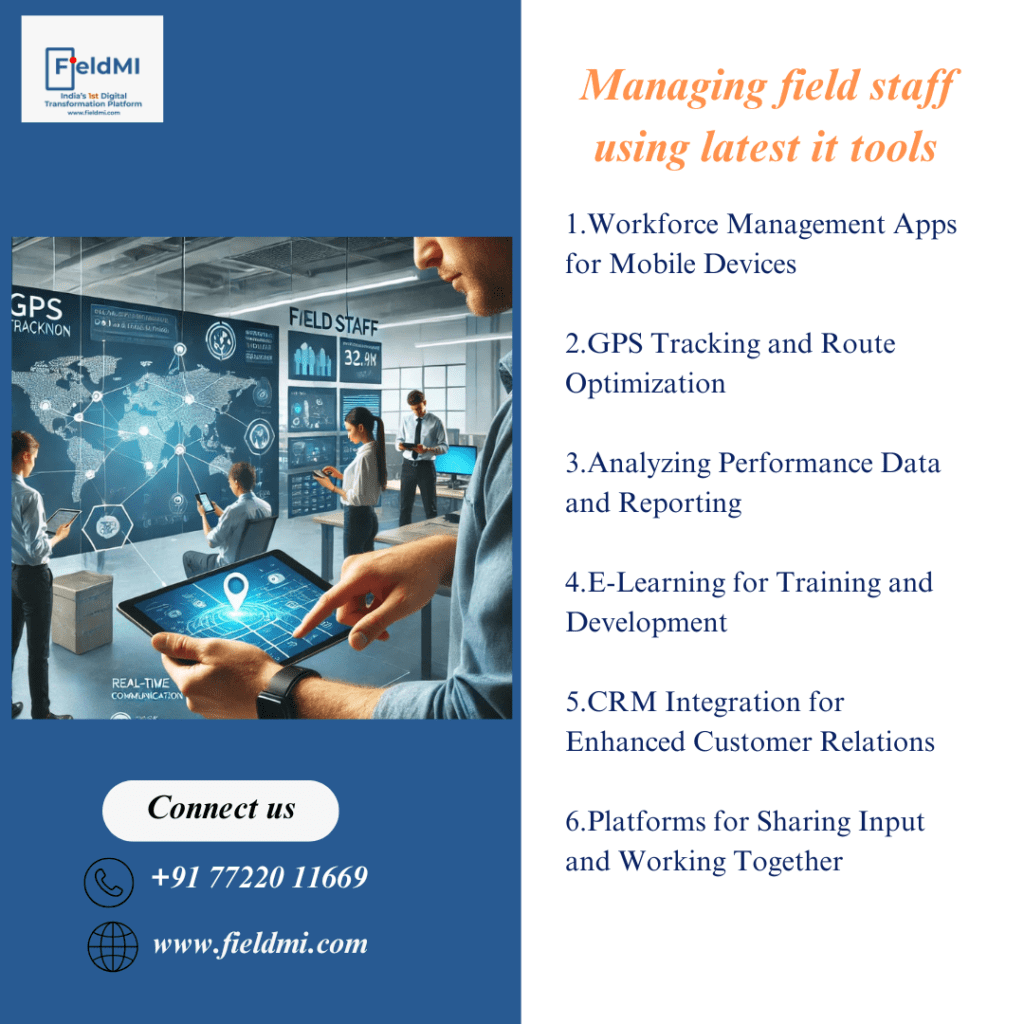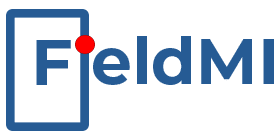
Managing Field Staff Using the Latest IT Tools
1. Workforce Management Apps for Mobile Devices
Apps designed for managing the workforce make operations smoother by allowing field workers to clock in, record their hours, and report their progress from their mobile devices. These applications make it easy for supervisors to assign tasks, track performance, and keep an eye on schedules as they happen. The ease of access from mobile devices boosts productivity, cutting down on the time spent on paperwork. Moreover, the data collected from these apps offers insights for better allocation of resources, leading to increased productivity and improved responsibility.
2. GPS Tracking and Route Optimization
GPS tracking technology allows leaders to keep tabs on the locations of their field staff and to optimize their routes for efficiency. By studying travel patterns, organizations can cut down on idle time and improve the timeliness of service delivery. This not only leads to higher customer satisfaction but also reduces fuel expenses and other costs. Real-time tracking gives leaders peace of mind, ensuring the safety of employees working in remote areas. In the end, optimizing routes contributes to better use of resources and operational efficiency.
3. Analyzing Performance Data and Reporting
The use of data analytics tools helps leaders assess the performance of their field staff in a detailed manner. These tools can produce reports on important metrics like productivity, customer satisfaction, and the rate at which tasks are completed. By examining this data, leaders can pinpoint areas needing improvement and recognize top performers. Regular evaluations of performance create an environment of accountability and continuous enhancement. This approach to decision-making is based on data, leading to choices that propel success.
.
4. E-Learning for Training and Development
Purchasing e-learning platforms equips field personnel with the necessary skills to excel in their positions. These platforms provide flexible training options that can be accessed from any location, making it simpler for employees to learn at their own pace. Regular updates to these training programs ensure that staff are up-to-date with the latest tools and practices. This dedication to their development boosts the morale of employees and improves the overall performance of the team. Having a skilled team is essential for staying ahead in the competition.
5. CRM Integration for Enhanced Customer Relations
Combining CRM tools with field management systems improves customer interactions and supports sales efforts. Field workers can access customer information and history in real-time, allowing for personalized service. This integration also makes it easier to follow up and manage customer inquiries effectively. With a full view of customer interactions, teams can forge stronger connections and increase retention rates. A well-executed CRM strategy ultimately drives sales and nurtures customer loyalty.
6. Platforms for Sharing Input and Working Together
Promoting input from those working in the field via online platforms for teamwork boosts the cohesion of the team. These resources enable workers to exchange their experiences, obstacles, and ideas for betterment. By creating an environment of transparent dialogue, companies can more easily spot and address problems. Moreover, these platforms facilitate the exchange of knowledge, which in turn improves the ability to solve problems. This approach of inclusivity gives field staff a sense of importance and involvement in their tasks.
By adopting these technological solutions, companies can greatly improve how they manage their field staff, resulting in better productivity, responsibility, and job satisfaction for employees.
Conclusion:
Leveraging the latest IT tools to manage field staff can significantly enhance operational efficiency and employee engagement. Instant messaging and video conferencing facilitate seamless communication, while workforce management apps streamline task assignments and performance tracking. GPS tracking optimizes routes, reducing costs and improving service delivery. Additionally, data analytics empowers leaders to make informed decisions, and e-learning platforms ensure ongoing staff development. Integrating CRM systems fosters stronger customer relationships, and collaborative platforms encourage open communication and problem-solving. Ultimately, these technological solutions lead to a more productive, accountable, and satisfied workforce, positioning organizations for success in a competitive landscape. FieldMI’s field sales tracking applications can help you get the most out of your sales team by automating and streamlining your sales processes so that you can produce more through both B2C and HoReCa channels as well as retail. Utilise FieldMi to effectively track field activities and assess the performance of your sales force.

